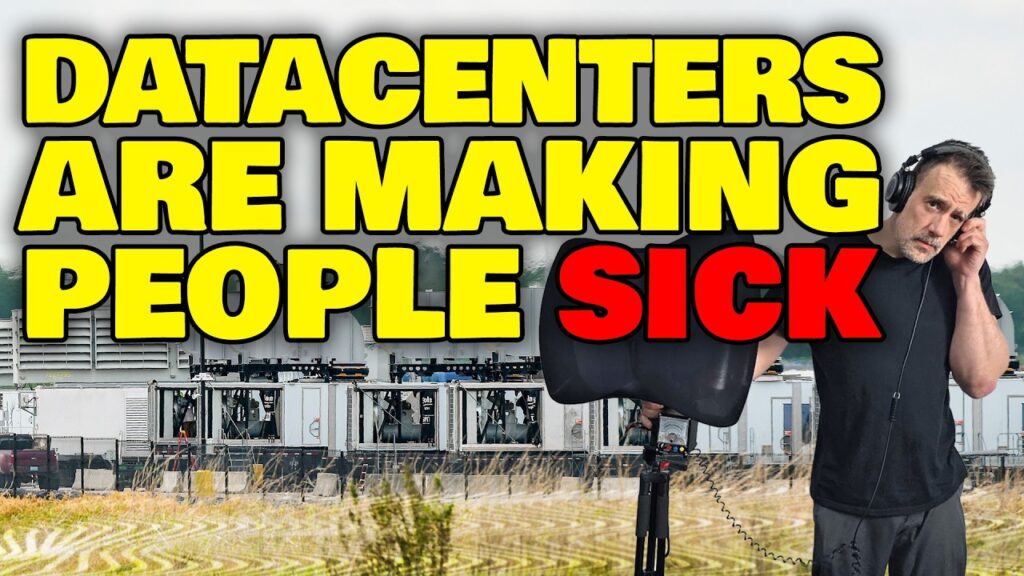By Catherine Austin Fitts
Theme:
Does it Feel Like Watching the Twilight Zone?
Macron declares the end of Western hegemony as ECB announces major stimulus package
Robert F. Kennedy, Jr. delivers an electrifying speech to advocates at a press conference about the passing into law of SB276 & SB714—and asks, “Where are the legal and rational boundaries now that the government can force a medical procedure on children?
Global 3.0 Accelerates: Technocracy, Transhumanism and High Strangeness
Stories:
- Brexit Blues
- 9/11 Anniversary
- Fed Meeting Next Week
- Ford is Downgraded
- Indian MP Mahua Moitra’s Maiden Speech – the 7 Signs of Facism
- Israeli Global Digital Systems Push
- AT&T in Play
- 911 Anniversary
- Whack-a-Doodle Proposals – Voting Age, Diet Selections, Skirt Ban
- WeWork IPO Stalls
- Protecting Yourself and Your Enterprise from Ransomware
- Social Proprieties: Protecting your children and loved ones from entrainment and mind control – Siri Wierdness
Hero:
-
Pamela Anderson
- Contemplate what has happened to Whoopi Goldberg
Let’s Go to the Movies:
Blast from the Past
Human Communications Between Reality and Official Reality with Jon Rappoport
Related Reading:
President Macron’s Amazing Admission
‘Hero of Brexit’ Lord James of Blackheath Threatened over EU Defence Union
News and Views From the Nefarium Sept 12 2019


























































































































Catherine, I had a questions regarding Corporations Share Buy Backs.
Mainstream analysis will say this is a return of capital to shareholders, or on a more pessimistic note, executive compensations boosting.
But it seems that this is a way to “crowd out” little people from owning shares in the means of production/dividends/cartels? Almost a less aggressive form of BoJ direct share purchasing, which I am sure the FED will do at some point.
So is there a more sinister agenda behind the share purchasing?
Dear Aaron
You might find these 2 links useful:
https://www.youtube.com/watch?v=p5XlvbzG5gw
https://www.paulcraigroberts.org/2019/06/06/the-state-of-the-economy/
Great Links,
Love Max Kaiser despite his well meaning bitcoin recommendations.
Thanks!
Share buybacks is a very important story. I have my eye out for a serious in depth study.
Question is – can you print money and buy the whole world before anyone organizes to stop you? Quite an experiment.
Catherine, I had a questions regarding Corporations Share Buy Backs.
Mainstream analysis will say this is a return of capital to shareholders, or on a more pessimistic note, executive compensations boosting.
But it seems that this is a way to “crowd out” little people from owning shares in the means of production/dividends/cartels? Almost a less aggressive form of BoJ direct share purchasing, which I am sure the FED will do at some point.
So is there a more sinister agenda behind the share purchasing?
Dear Aaron
You might find these 2 links useful:
https://www.youtube.com/watch?v=p5XlvbzG5gw
https://www.paulcraigroberts.org/2019/06/06/the-state-of-the-economy/
Great Links,
Love Max Kaiser despite his well meaning bitcoin recommendations.
Thanks!
Share buybacks is a very important story. I have my eye out for a serious in depth study.
Question is – can you print money and buy the whole world before anyone organizes to stop you? Quite an experiment.
Catherine,
Reading/Listening Your work, Jeffery Gundlach, and Michael Hudson.
The Consensus seems that Trump is attempting to paper over and lose or balance the reserve currency status.
Making it equal to J.P. Morgans recent advice to its UHNW clients currency exposure. https://www.zerohedge.com/s3/files/inline-images/PROD-19-683-FX-Exposure-1800px_v01A.png?itok=IQA-w1y6. This is almost directly equal to the SDR basket.
Trumps strategy “disorder by design” with constant firing of cabnient members,war posturing, Tweeting at the FED, and slapping tariffs on all the countries, is very planned. So global/domestic investors begin to shift their assets elsewhere, precieveing the USA as unstable. Therefore Countries are able to build alternative routes of trade/commerce.
This will allow the US to paper over the debts/obligations in the short term of Now-2024ish? Inviting significant inflation to America. Once most of the debts are papered over or refinanced at near zero(negative)rates. They will return to a more sound monetary policy of much higher interest rates(gundlachs 5%).
The Big Banks Stress Tests by the federal reserve seems to predict a
1) 10% in unemployment
2) 8% decline in GDP
3) 1/4th decline in home prices
4) 1/3 decline in commercial real estate
5) 1/2 stock price decline
The big banks are well capitalized and ready to Loot at fire sale. Which explains Warren Buffets stock position. Big oil is also circling Permian basin.
Once the turmoil of the coming years is over. I see an extremely solidified Neo-feudal class structure, or a New World Order.
Many scenarios are possible….most of them are hard times for most people which is why building resiliancy and maintaining coherence is so important.
Catherine,
Reading/Listening Your work, Jeffery Gundlach, and Michael Hudson.
The Consensus seems that Trump is attempting to paper over and lose or balance the reserve currency status.
Making it equal to J.P. Morgans recent advice to its UHNW clients currency exposure. https://www.zerohedge.com/s3/files/inline-images/PROD-19-683-FX-Exposure-1800px_v01A.png?itok=IQA-w1y6. This is almost directly equal to the SDR basket.
Trumps strategy “disorder by design” with constant firing of cabnient members,war posturing, Tweeting at the FED, and slapping tariffs on all the countries, is very planned. So global/domestic investors begin to shift their assets elsewhere, precieveing the USA as unstable. Therefore Countries are able to build alternative routes of trade/commerce.
This will allow the US to paper over the debts/obligations in the short term of Now-2024ish? Inviting significant inflation to America. Once most of the debts are papered over or refinanced at near zero(negative)rates. They will return to a more sound monetary policy of much higher interest rates(gundlachs 5%).
The Big Banks Stress Tests by the federal reserve seems to predict a
1) 10% in unemployment
2) 8% decline in GDP
3) 1/4th decline in home prices
4) 1/3 decline in commercial real estate
5) 1/2 stock price decline
The big banks are well capitalized and ready to Loot at fire sale. Which explains Warren Buffets stock position. Big oil is also circling Permian basin.
Once the turmoil of the coming years is over. I see an extremely solidified Neo-feudal class structure, or a New World Order.
Many scenarios are possible….most of them are hard times for most people which is why building resiliancy and maintaining coherence is so important.
Another enlightening M&M, Catherine. Thank you!
Back on American Factory, I think the main reason why the Chinese workers are willing to work overtime without pay and work more efficiently “as a team,” is less due to a mentality of supporting the organization as a whole, and more due to the pragmatic understanding that if they don’t do it, there are 1.4 billion other people who will, figuratively speaking. The competition in China and Asia, more generally, is usually exponentially more cutthroat than in North America, and the Chinese elites and business owners certainly know how to use that knowledge to their advantages.
True. Part of that is accepting responsibility to get the plant to profitability. They understand that you can only eat what you grown. Too many of the Americans had lots that sense. Getting embroiled with a union before the plant is profitable is suicide. Headed in the opposite direction.
I source some parts for my product line from China… I have been trying to source them here in the U.S. for years. I HAVE found a couple manufacturers that will work with me, and their product quality is superb.
I find some factories that do the work… call them, and about 1 or 2 out of 10 respond. The ones that do respond, want Minimum Order Quantities that would require a $50k to $80k spend, and their turn arounds are 3 to 6 months.
It’s no wonder Asia has kicked our a**es. Unions and the burden they place on manufacturers most certainly are a part of why I keep running into this.
I’m sure are some small “boutique” factories in America that can do the work… but they are difficult to find, typically because they are already dialed into a niche market demand.
I think there is a big opportunity for small business and small factories to collaborate on profitable product offerings, if they could only somehow find each other. Yes… it raises risk when time and money are invested in sliver thin market specialization… but e-commerce has made market testing profoundly cost effective these days, and make costs for testing for demand almost trivial compared to “the old days”.
Very good intel. Thanks, Dave.
GATT reveals the anti-human agenda being pursued in the name of efficiency.
I understand what you are saying, and conventionally it makes sense, especially from a management point of view. The American workers were “biting the hand that fed them,” when previously they were not even eating. However, from the point of view of labor, and though unions are far from perfect, they are a necessary evil in corporate-labor negotiations. Many questions are left unanswered, still today, since there was not an organized effort to negotiate. I’m not sure how many of the below questions a union could get answered, but it certainly had the potential to be more than without one, since the answer without one was zero.
For example, is it unreasonable to ask whether the $10 million loss (monthly?) was accurate? Did management take this loss into account *already* in long-term planning? Where was the absolute break-off point where the factory/business would need to shut down? How much of the supposed loss came from executive compensation, which ultimately could be reduced, “for the sake of the company’s survival?” If the company was willing to spend $1 million on union-busting propaganda, it was likely budgeted, especially since the owner early on expressed his concern for unionizing and unions were previously strong in that area. What plans were there if union-busting efforts were unsuccessful?
For the Chinese workers, it’s a race to the bottom with respect to wages. Most laborers in China (and Asia, generally) have no representation and consequently take what they are given. Along with the high population and fierce competition for *any* jobs, these are a couple of reasons why labor is so cheap in Asia. Fear motivates those workers: the real fear of being homeless, the real fear of literally starving, and the fear of shame, in a system without a social net. But even in China, this has been apparently changing, especially with the slowing economy.
https://www.dw.com/en/labor-rights-movements-gaining-momentum-in-china/a-18959557
I would guess this is one of the reasons why Vietnam, where labor rights are lacking, to say the least, has become a more favorable place for cheap labor:
https://www.nytimes.com/2017/03/01/business/trump-tpp-trade-vietnam-labor-environment.html
Once Fuyao (or any corporation) did turn a profit, it would have been hard-pressed for workers to get a raise without organizing, especially since automation was likely in the equation to begin with. Hence, there was a need to “bite the hand that feeds you.”
The American workers that wanted to organize, at the very least, were protecting their ability to get some answers. With automation, which I speculate was always in the equation, those who didn’t organize lost as well as those who did, but the latter would have at least had a chance to negotiate.
Thoughts?
All economic enterprise is subject to performance. Have to sell it for more than it costs you to make it. However, unless you have the basic conditions of a market economy, pitting global capital against labor is a depopulation plan. You are harvesting people like natural resources – see the Sir James Goldsmith videos. He nails it. Fiat currency as opposed to sound money is problem #1. No transparency/complete secrecy on government and central bank money and operations is problem #2. Invisible weaponry and mind control engaged in surveillance capitalism is #3. The engineering of capital on a functional basis instead of a place based to allow wide discrepancies in access to intellectual capital and financial capital is problem #4. The poisoning of the population with heavy metals and GMO and other experimentation is problem #5. A leadership that is above the law is problem #6….yes, we need organization – but we need smart organization, not stupid organizations who are as fantasy based as the fake media.
A smart union would be focused on getting to profitability and earning a share of growing profits for its workers. A smart union creates alignment working with all the issues you describe.
Crystal clear. Thanks!
I’ve gone through a few of the Sir James Goldsmith-Charlie Rose 1994 interviews again. I believe these are the two parts you are referring to:
https://www.youtube.com/watch?v=4PQrz8F0dBI (starting at 5:20)
https://www.youtube.com/watch?v=SZTzPmn-87w (starting at 0:00)
Sorry, I’m unclear about specifically how pitting global capital against labor is a depopulation plan, besides creating that race to the bottom to find people willing to work for as little as possible. Corporations have been harvesting people/labor like natural resources for some time now, especially and most clearly in developing nations.
Having the power to push back/negotiate with a corporation with a well-organized labor force, seems to me the only way to survive for the time being, before automation takes over, which goes back to my initial point that the American workers were right to organize, unlike the Chinese workers, who have been conditioned/”in a trance” not to question or stand up to “authority,” especially since that’s all they likely have known in China. Questioning authority is not culturally acceptable in most modern Asian societies.
Yes, a smart union would do exactly as you have said, but there needs to be one in existence first. Or have I missed something?
Yes, there needs to be a smart union. Not promoting or paying dues to stupid unions might help get us there.
Sounds pretty clear to me:
Sir James Goldsmith from an interview in November 1994, on the General Agreement on Trade and Tariff (GATT) which created the World Trade Organization:
The idea is to create what is known today as efficient agriculture and to impose it worldwide. Let me just give you one [impact] of GATT on the third world. The idea of GATT is that the efficiency of agriculture throughout the world should …produce the most amount of food for the least cost. But what does that really mean? …What is cost?
When you produce the intensified agriculture and you reduce the number of people on the land, what happens to those people?…They are chased into the towns. They lose their jobs on the land. If they go into the towns, there are no jobs, there is no infrastructure. The social costs of those people, the financial costs of the infrastructure has to be added to the cost of producing food.
On top of that, you are breaking families, you are uprooting them, you are throwing them into the slums. Do you realize that in Brazil, the favelas (slums) did not exist before the Green Revolution of intensifying agriculture.
In the world today there are 3.1 billion people still living in rural communities. If GATT succeeds and we are able to impose modern methods of agriculture worldwide, so as to bring them to the level of Canada or Australia, what will happen? 2.1 billion people will be uprooted from the land and chased into the towns throughout the world. It is the single greatest disaster [in our history] greater than any war.
We have to change priorities. Let’s take agriculture. Instead of just trying to produce the maximum amount for the cheapest direct costs, let us try to take into account the other costs. Our purpose should not be just the one dimensional cost of food. We want the right amount of food, for the right quality for health and the right quality for the environment and employing enough people so as to maintain social stability in the rural areas.
If not, and we chase 2.1 billion people into the slums of the towns, we will create on a scale unheard of mass migration – what we saw in Rwanda with 2 million people will be nothing — so as to satisfy an economic doctrine. … We would be creating 2 billion refuges. We would be creating mass waves of migration which none of us could control. We would be destroying the towns which are already largely destroyed. Look at Mexico, Rio, look at our own towns.
And we are doing this for economic dogma?…What is this nonsense? Everything is based in our modern society on improving an economic index…The result is that we are destroying the stability of our societies, because we are worshiping the wrong god… Economic index.
The economy, like everything else, is a tool which should be submitted to, should be subject to, the true and fundamental requirements of society.
…This is the establishment against the rest of society… I am for business, so long as it does not devour society…[But] we have a conflict of interest. Big business loves having access to an unlimited supply of give away labor…
…You cannot enrich a country by destroying the health of its population. The health of a society cannot be measured by corporate profitability…
…We have allowed the instruments that are supposed to serve us to become our masters.
Another enlightening M&M, Catherine. Thank you!
Back on American Factory, I think the main reason why the Chinese workers are willing to work overtime without pay and work more efficiently “as a team,” is less due to a mentality of supporting the organization as a whole, and more due to the pragmatic understanding that if they don’t do it, there are 1.4 billion other people who will, figuratively speaking. The competition in China and Asia, more generally, is usually exponentially more cutthroat than in North America, and the Chinese elites and business owners certainly know how to use that knowledge to their advantages.
True. Part of that is accepting responsibility to get the plant to profitability. They understand that you can only eat what you grown. Too many of the Americans had lots that sense. Getting embroiled with a union before the plant is profitable is suicide. Headed in the opposite direction.
I source some parts for my product line from China… I have been trying to source them here in the U.S. for years. I HAVE found a couple manufacturers that will work with me, and their product quality is superb.
I find some factories that do the work… call them, and about 1 or 2 out of 10 respond. The ones that do respond, want Minimum Order Quantities that would require a $50k to $80k spend, and their turn arounds are 3 to 6 months.
It’s no wonder Asia has kicked our a**es. Unions and the burden they place on manufacturers most certainly are a part of why I keep running into this.
I’m sure are some small “boutique” factories in America that can do the work… but they are difficult to find, typically because they are already dialed into a niche market demand.
I think there is a big opportunity for small business and small factories to collaborate on profitable product offerings, if they could only somehow find each other. Yes… it raises risk when time and money are invested in sliver thin market specialization… but e-commerce has made market testing profoundly cost effective these days, and make costs for testing for demand almost trivial compared to “the old days”.
Very good intel. Thanks, Dave.
GATT reveals the anti-human agenda being pursued in the name of efficiency.
I understand what you are saying, and conventionally it makes sense, especially from a management point of view. The American workers were “biting the hand that fed them,” when previously they were not even eating. However, from the point of view of labor, and though unions are far from perfect, they are a necessary evil in corporate-labor negotiations. Many questions are left unanswered, still today, since there was not an organized effort to negotiate. I’m not sure how many of the below questions a union could get answered, but it certainly had the potential to be more than without one, since the answer without one was zero.
For example, is it unreasonable to ask whether the $10 million loss (monthly?) was accurate? Did management take this loss into account *already* in long-term planning? Where was the absolute break-off point where the factory/business would need to shut down? How much of the supposed loss came from executive compensation, which ultimately could be reduced, “for the sake of the company’s survival?” If the company was willing to spend $1 million on union-busting propaganda, it was likely budgeted, especially since the owner early on expressed his concern for unionizing and unions were previously strong in that area. What plans were there if union-busting efforts were unsuccessful?
For the Chinese workers, it’s a race to the bottom with respect to wages. Most laborers in China (and Asia, generally) have no representation and consequently take what they are given. Along with the high population and fierce competition for *any* jobs, these are a couple of reasons why labor is so cheap in Asia. Fear motivates those workers: the real fear of being homeless, the real fear of literally starving, and the fear of shame, in a system without a social net. But even in China, this has been apparently changing, especially with the slowing economy.
https://www.dw.com/en/labor-rights-movements-gaining-momentum-in-china/a-18959557
I would guess this is one of the reasons why Vietnam, where labor rights are lacking, to say the least, has become a more favorable place for cheap labor:
https://www.nytimes.com/2017/03/01/business/trump-tpp-trade-vietnam-labor-environment.html
Once Fuyao (or any corporation) did turn a profit, it would have been hard-pressed for workers to get a raise without organizing, especially since automation was likely in the equation to begin with. Hence, there was a need to “bite the hand that feeds you.”
The American workers that wanted to organize, at the very least, were protecting their ability to get some answers. With automation, which I speculate was always in the equation, those who didn’t organize lost as well as those who did, but the latter would have at least had a chance to negotiate.
Thoughts?
All economic enterprise is subject to performance. Have to sell it for more than it costs you to make it. However, unless you have the basic conditions of a market economy, pitting global capital against labor is a depopulation plan. You are harvesting people like natural resources – see the Sir James Goldsmith videos. He nails it. Fiat currency as opposed to sound money is problem #1. No transparency/complete secrecy on government and central bank money and operations is problem #2. Invisible weaponry and mind control engaged in surveillance capitalism is #3. The engineering of capital on a functional basis instead of a place based to allow wide discrepancies in access to intellectual capital and financial capital is problem #4. The poisoning of the population with heavy metals and GMO and other experimentation is problem #5. A leadership that is above the law is problem #6….yes, we need organization – but we need smart organization, not stupid organizations who are as fantasy based as the fake media.
A smart union would be focused on getting to profitability and earning a share of growing profits for its workers. A smart union creates alignment working with all the issues you describe.
Crystal clear. Thanks!
I’ve gone through a few of the Sir James Goldsmith-Charlie Rose 1994 interviews again. I believe these are the two parts you are referring to:
https://www.youtube.com/watch?v=4PQrz8F0dBI (starting at 5:20)
https://www.youtube.com/watch?v=SZTzPmn-87w (starting at 0:00)
Sorry, I’m unclear about specifically how pitting global capital against labor is a depopulation plan, besides creating that race to the bottom to find people willing to work for as little as possible. Corporations have been harvesting people/labor like natural resources for some time now, especially and most clearly in developing nations.
Having the power to push back/negotiate with a corporation with a well-organized labor force, seems to me the only way to survive for the time being, before automation takes over, which goes back to my initial point that the American workers were right to organize, unlike the Chinese workers, who have been conditioned/”in a trance” not to question or stand up to “authority,” especially since that’s all they likely have known in China. Questioning authority is not culturally acceptable in most modern Asian societies.
Yes, a smart union would do exactly as you have said, but there needs to be one in existence first. Or have I missed something?
Yes, there needs to be a smart union. Not promoting or paying dues to stupid unions might help get us there.
Sounds pretty clear to me:
Sir James Goldsmith from an interview in November 1994, on the General Agreement on Trade and Tariff (GATT) which created the World Trade Organization:
The idea is to create what is known today as efficient agriculture and to impose it worldwide. Let me just give you one [impact] of GATT on the third world. The idea of GATT is that the efficiency of agriculture throughout the world should …produce the most amount of food for the least cost. But what does that really mean? …What is cost?
When you produce the intensified agriculture and you reduce the number of people on the land, what happens to those people?…They are chased into the towns. They lose their jobs on the land. If they go into the towns, there are no jobs, there is no infrastructure. The social costs of those people, the financial costs of the infrastructure has to be added to the cost of producing food.
On top of that, you are breaking families, you are uprooting them, you are throwing them into the slums. Do you realize that in Brazil, the favelas (slums) did not exist before the Green Revolution of intensifying agriculture.
In the world today there are 3.1 billion people still living in rural communities. If GATT succeeds and we are able to impose modern methods of agriculture worldwide, so as to bring them to the level of Canada or Australia, what will happen? 2.1 billion people will be uprooted from the land and chased into the towns throughout the world. It is the single greatest disaster [in our history] greater than any war.
We have to change priorities. Let’s take agriculture. Instead of just trying to produce the maximum amount for the cheapest direct costs, let us try to take into account the other costs. Our purpose should not be just the one dimensional cost of food. We want the right amount of food, for the right quality for health and the right quality for the environment and employing enough people so as to maintain social stability in the rural areas.
If not, and we chase 2.1 billion people into the slums of the towns, we will create on a scale unheard of mass migration – what we saw in Rwanda with 2 million people will be nothing — so as to satisfy an economic doctrine. … We would be creating 2 billion refuges. We would be creating mass waves of migration which none of us could control. We would be destroying the towns which are already largely destroyed. Look at Mexico, Rio, look at our own towns.
And we are doing this for economic dogma?…What is this nonsense? Everything is based in our modern society on improving an economic index…The result is that we are destroying the stability of our societies, because we are worshiping the wrong god… Economic index.
The economy, like everything else, is a tool which should be submitted to, should be subject to, the true and fundamental requirements of society.
…This is the establishment against the rest of society… I am for business, so long as it does not devour society…[But] we have a conflict of interest. Big business loves having access to an unlimited supply of give away labor…
…You cannot enrich a country by destroying the health of its population. The health of a society cannot be measured by corporate profitability…
…We have allowed the instruments that are supposed to serve us to become our masters.
I love the discussion about living in the intersection of official reality vs reality. I have lived in this zone and managed to survived, though, what I call “the soul of money” channels, can be tricky to navigate.
Please keep up the discussion and unpacking of this very relevant territory.